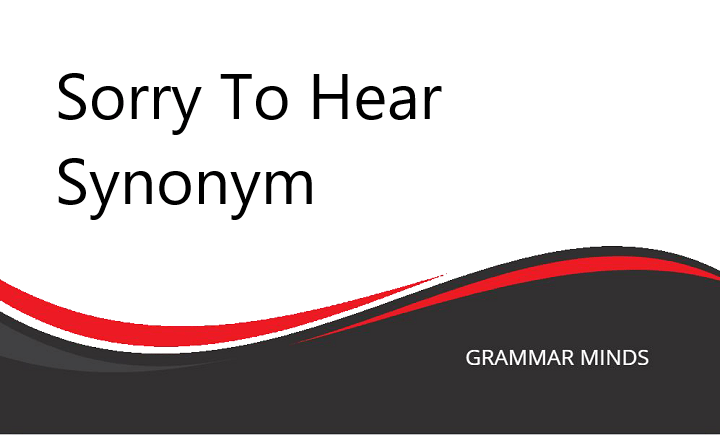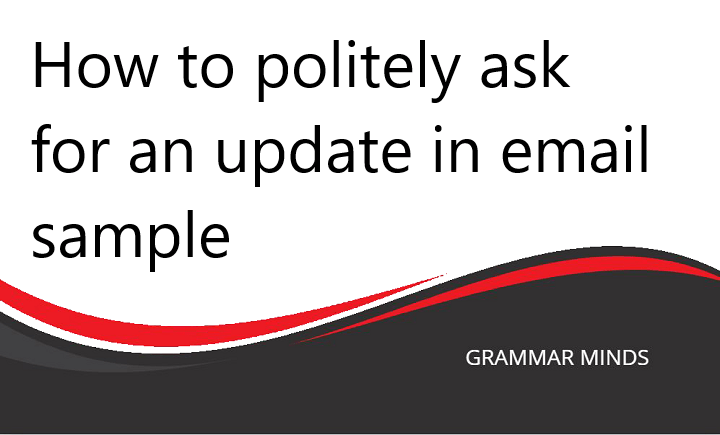Do you find yourself using the phrase “sorry to hear” repeatedly? Whether you’re consoling a friend, responding to bad news in a professional setting, or empathizing with someone in a casual conversation, it can feel limiting to rely on the same phrase over and over. While “sorry to hear” is grammatically correct and universally understood, it can sometimes come off as generic or overused.
Have you grown tired of this repetitive expression in your professional or personal life? Don’t worry! We’ve compiled a handy list of alternative phrases that you can use to mix things up and sound more varied in your conversations.
Other Ways to Say “Sorry to Hear”
Here are ten alternative ways to say “sorry to hear” in different contexts. These phrases allow you to express empathy in both formal and informal settings without sounding repetitive.
“I’m deeply saddened by…”
This phrase conveys a more profound sense of empathy and is suitable for both formal and informal occasions.
“I’m sorry you’re going through this.”
This alternative makes your empathy more personal and direct, ideal for expressing concern in an informal conversation.
“That’s unfortunate to hear.”
A neutral and polite way of acknowledging bad news, perfect for professional settings like emails or meetings.
“It’s heartbreaking to hear…”
A more emotional phrase that expresses deep empathy, suitable for conversations with close friends or family.
“I wish things were different.”
This phrase can soften the message and is often used in both personal and professional situations where you want to express regret.
“I’m truly sorry this happened to you.”
An alternative that feels sincere and personalized, perfect for either personal or professional conversations.
“That must be tough for you.”
A compassionate phrase acknowledging the difficulty the person might be facing, ideal for informal conversations.
“Please know that my thoughts are with you.”
A formal and considerate phrase that’s often used in written communication, like sympathy cards or emails.
“It sounds like you’re going through a really hard time.”
A more detailed, empathetic response that shows you’ve listened carefully, suitable for personal conversations.
“My heart goes out to you.”
This is a heartfelt and comforting phrase that works well in deeply personal or emotional conversations.
Key Notes
“Sorry to hear” is grammatically correct and suitable for both formal and informal situations. However, it can sometimes feel a bit basic and overused, especially in more heartfelt or emotional contexts. That’s why using alternatives is a great way to diversify your communication.
- You can use “I’m deeply saddened by” for more formal settings, especially in emails or official statements.
- “That must be tough for you” is a great informal alternative to “sorry to hear” when speaking with friends or family.
Let’s dive deeper into how these alternatives can be used effectively in both formal and informal contexts, and explore real-life examples that you can apply immediately.
“I’m deeply saddened by…”
Usage:
If you’re looking for a more formal way to say “sorry to hear,” try using “I’m deeply saddened by.” This alternative adds a touch of sophistication, making it ideal for professional environments such as emails or meetings where expressing empathy needs to maintain a degree of formality.
Example (in an email):
Dear [Recipient],
Thank you for sharing your update. I’m deeply saddened by the news of your recent situation, and I want to extend my heartfelt sympathies.
Best regards,
[Your Name]
“I’m sorry you’re going through this.”
Usage:
A more informal alternative to “sorry to hear” is “I’m sorry you’re going through this.” This phrase works well when you’re offering comfort in a personal setting, like talking to a close friend or family member who’s experiencing a tough time.
Example (in conversation):
Hey [Friend’s Name],
I’m sorry you’re going through this. Let me know if you need anything, okay?
“That’s unfortunate to hear.”
Usage:
If you want to maintain professionalism but still express concern, “That’s unfortunate to hear” is a neutral and respectful option. It’s often used in professional environments where you need to acknowledge bad news without sounding too emotional.
Example (in a meeting):
[Colleague’s Name],
That’s unfortunate to hear. Let’s explore some ways we can mitigate the impact of this situation on the project.
“It’s heartbreaking to hear…”
Usage:
If the news is especially sad or emotional, “It’s heartbreaking to hear” expresses a stronger feeling of empathy. This phrase is particularly useful in close relationships where you want to convey emotional depth.
Example (in conversation):
It’s heartbreaking to hear about your loss, [Friend’s Name]. If you need anything, I’m here for you.
“I wish things were different.”
Usage:
“I wish things were different” conveys a sense of regret and empathy, making it useful in situations where you can’t change the outcome but still want to show your support. It works in both formal and informal settings.
Example (in an email):
Dear [Recipient],
I wish things were different, and I sincerely hope the situation improves soon. Please keep me updated if anything changes.
“I’m truly sorry this happened to you.”
Usage:
For a more personal and heartfelt response, you can use “I’m truly sorry this happened to you.” It’s direct and sincere, which makes it suitable for both personal and formal situations where empathy is important.
Example (in a conversation):
I’m truly sorry this happened to you, [Friend’s Name]. It’s just not fair, and I’m here for you however I can be.
“That must be tough for you.”
Usage:
A compassionate phrase like “That must be tough for you” acknowledges the difficulty someone is facing without being overly formal or emotional. It’s great for everyday conversations, especially in more casual contexts.
Example (in conversation):
That must be tough for you, [Name]. I hope things get better soon.
“Please know that my thoughts are with you.”
Usage:
This phrase is a formal way to express sympathy, making it perfect for written communication like sympathy cards, emails, or professional messages. It’s a respectful and sincere way to offer support.
Example (in an email):
Dear [Recipient],
Please know that my thoughts are with you during this difficult time. If there’s anything I can do, feel free to reach out.
“It sounds like you’re going through a really hard time.”
Usage:
This phrase shows that you’ve been actively listening and that you understand the person’s struggles. It’s informal and works well in personal conversations where you’re consoling a friend or loved one.
Example (in conversation):
It sounds like you’re going through a really hard time, [Friend’s Name]. I’m always here if you need to talk.
“My heart goes out to you.”
Usage:
A deeply personal and emotional phrase, “My heart goes out to you” is often used in conversations that involve significant loss or hardship. It’s not ideal for formal situations but works perfectly in emotional or personal discussions.
Example (in conversation):
My heart goes out to you, [Friend’s Name]. I can’t imagine how hard this must be for you.
Is It Correct to Say “Sorry to Hear”?
Yes! “Sorry to hear” is grammatically correct and suitable for both formal and informal settings. It’s a versatile phrase that can be used in professional emails, conversations with colleagues, or casual chats with friends. However, relying on it too often can make your communication seem repetitive or less impactful.
That being said, using synonyms like the ones we’ve listed above will help you mix up your language and sound more varied in your communication. You can also try slight variations of the phrase, such as:
- “Sorry to hear about your loss.”
- “I’m sorry to hear what happened.”
- “I was saddened to hear the news.”
Also Read:
Top Alternatives to “Experience” for Your Resume
In conclusion, “sorry to hear” is a perfectly acceptable and grammatically correct phrase, whether you’re using it in a formal or informal setting. However, the alternative phrases provided in this article will help you diversify your vocabulary and communicate more effectively in different contexts. Whether you’re writing an email to a colleague or offering comfort to a friend, these alternatives can make your message more meaningful and personalized.







